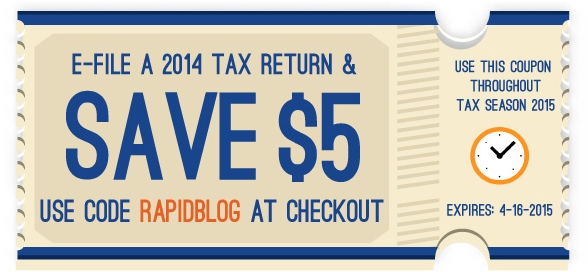Don’t have Health Insurance? You may fall within the exemptions from the Obamacare fee…
Although 8 million more Americans are now insured thanks to the Affordable Care Act (ACA), there’s still many who remain uninsured. These uninsured Americans fall into one of two categories;
- those who will face penalties or
- those who qualify for an exemption.
That means, if you don’t plan on paying the uninsured fee when filing your 2014 taxes, you’ll need proof that you fall on the list of health insurance mandate exemptions.
For some, the information reported on your 2014 tax return will be adequate proof. For others however, the exemption will first need to be granted by the marketplace and an Exemption Certificate Number will be required when filing.
Are there exemptions from the fee for not having health insurance?
If you fall within any of the following categories for 2014, you’ll qualify as an exemption when filing your 2014 Tax Return and WILL NOT be required to enter a Exemption Certificate Number to claim the exemption:
- your yearly income is below the threshold to file a tax return
- you went without coverage for less than 3 consecutive months during the year
- coverage was unaffordable (premiums totaled more than 8% of your annual household income)
- you’re not lawfully present in the US
If you fall within any of the following categories, you WILL be required to enter a Exemption Certificate Number granted by the Marketplace in order to claim the exemption:
- you have an approved religious objection to health care coverage
- you’re a member of a recognized health care sharing ministry
- you’re a member of a federally recognized tribe (or eligible for services through an Indian Health Service provider)
- you’re incarcerated (detained or jailed) and not being held pending disposition of charges
- you were ineligible for Medicaid because your state didn’t expand it’s Medicaid eligibility AND you fall below the 138% federal poverty level (Click here to view whether or not your state participated in the Medicaid expansion)
- you qualify for a hardship exemption (see below)
Who does the “Hardship Exemption” include?
According to HealthCare.gov, you may qualify for a hardship exemption if in 2014;
- you were homeless
- you were facing eviction or foreclosure or you were evicted in the past 6 months
- a utility company sent you a shut-off notice
- you experienced domestic violence
- a close family member died
- you experienced a fire, flood or other natural or human-caused disaster which caused substantial damage to your property
- you filed for bankruptcy in the last 6 months
- you have substantial debt due to medical expenses you couldn’t pay in the last 24 months
- you had an unexpected increase in expenses due to caring for an ill, disabled or aging family member
- your individual insurance plan was cancelled and Marketplace plans are unaffordable to you
As stated above, you’ll need to be granted by the Marketplace that you qualify for the hardship exemption and enter a ECN on your 2014 Taxes.
How does this affect filing 2014 taxes?
If you qualify as an exemption, you won’t face the fee for not having health coverage when filing your 2014 taxes. You’ll simply report your exemption information on your 2014 Taxes.
With RapidTax, reporting your exemption information on your 2014 taxes will be easy! Create an Account and e-file your 2014 Taxes today.
If you have any questions along the way, call, chat or send an email to the RapidTax team! We’re here to help.
Photo via Keoni Cabral on Flickr



